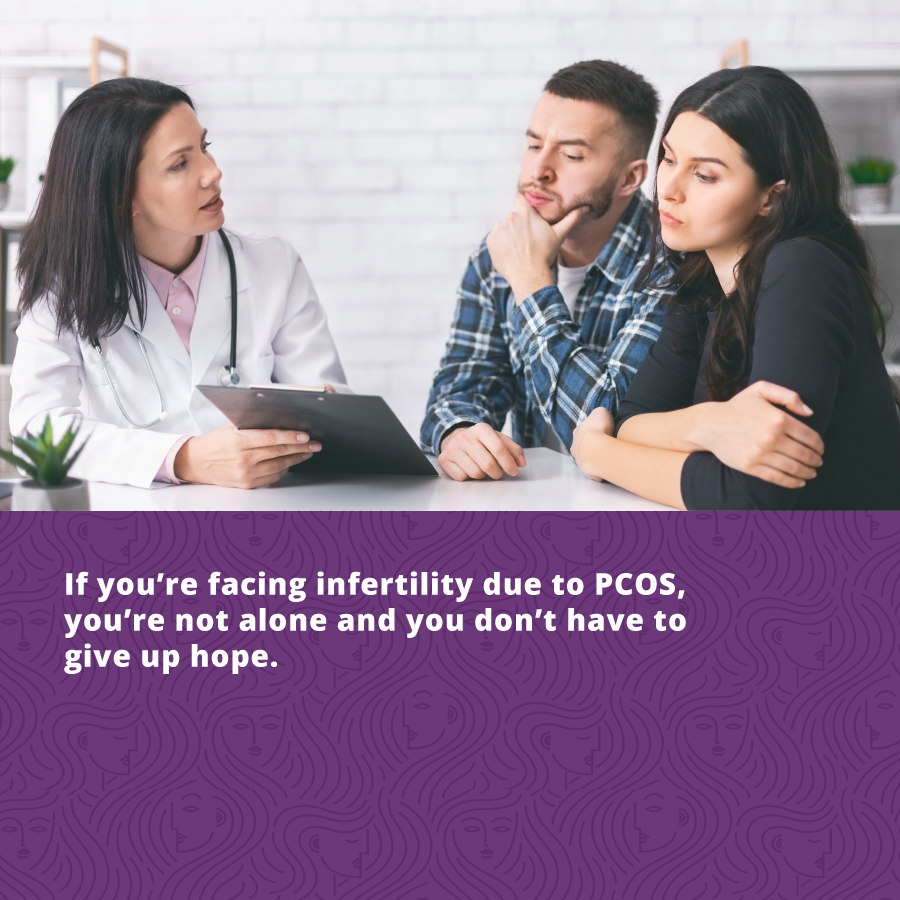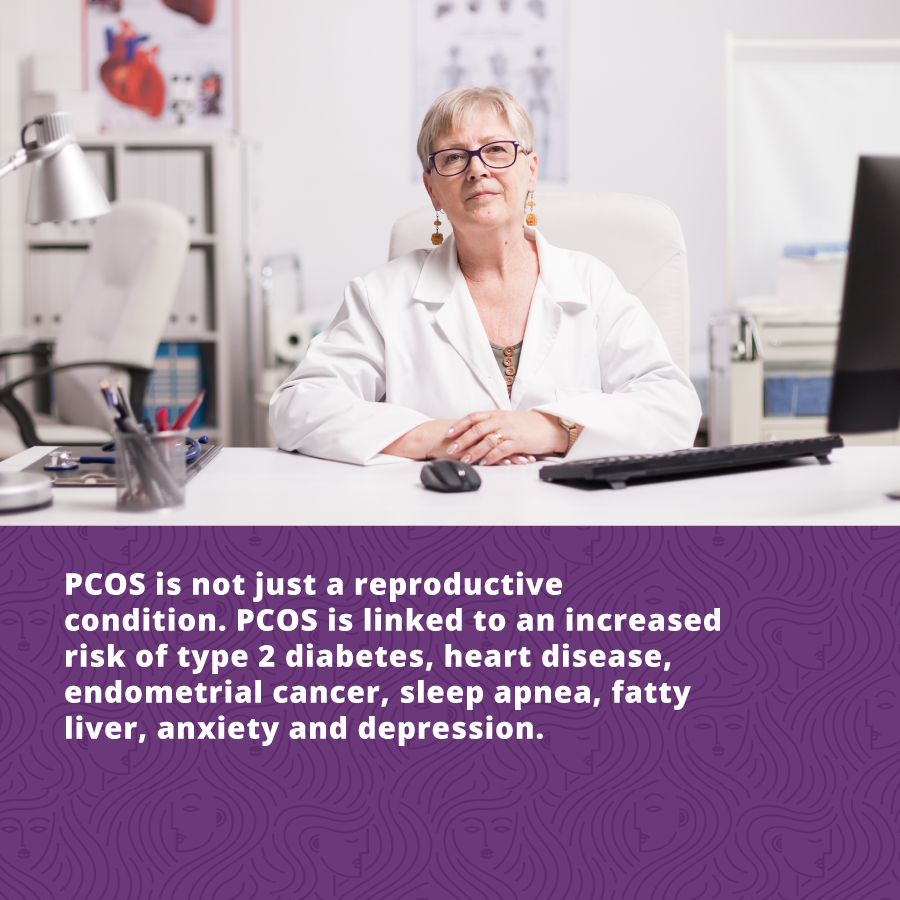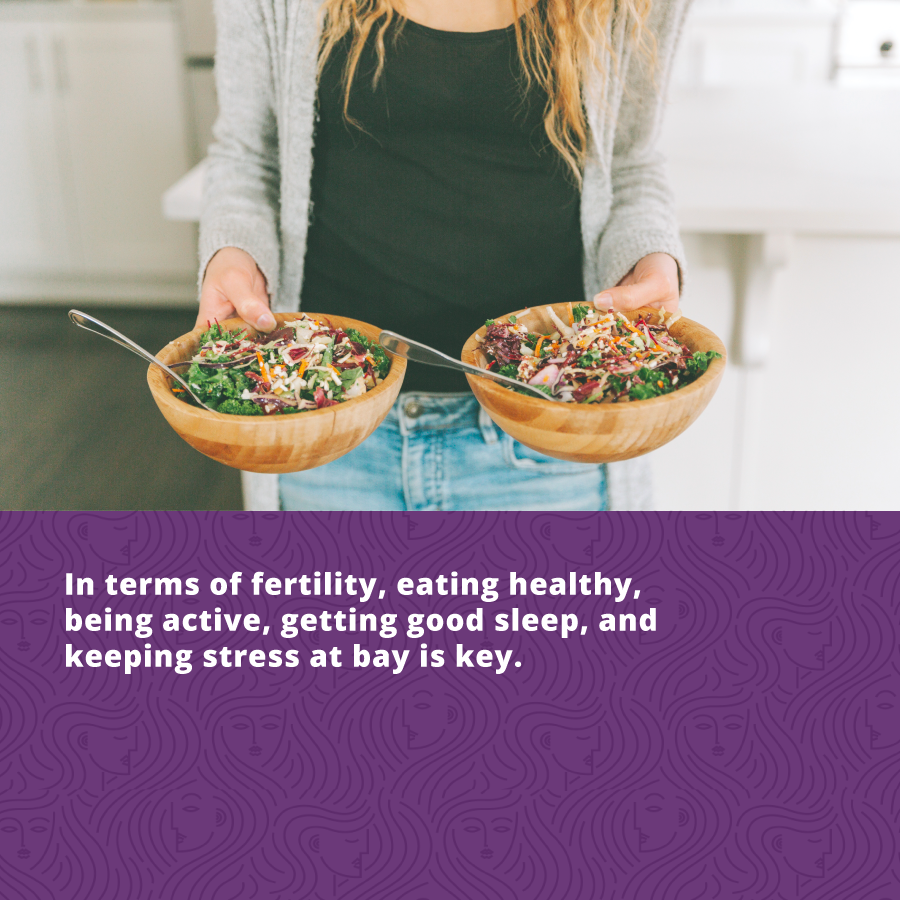Managing PCOS & Your Fertility
September is the month to raise awareness of the number one cause of infertility in women – PCOS. Polycystic Ovary Syndrome, or PCOS, affects more than 1 in 5 women and is now the #1 condition affecting women’s health today. PCOS can make getting pregnant harder and can cause a number of complications during pregnancy, making it crucial to manage and understand family planning.

If you’re facing infertility due to PCOS, you’re not alone and you don’t have to give up hope. There are steps you can take to manage your fertility and take charge of your health to start a family.
What is Polycystic Ovary Syndrome or PCOS?
For those unaware, Polycystic Ovary Syndrome is an endocrine disorder that causes various reproductive hormone levels, namely androgen, insulin, and progesterone, to become irregular. PCOS can affect any woman of child-bearing age. Excess androgen may cause hair loss, acne, or hair growth in places you may not want it, like on the face and chest. It can also cause darkened skin tags to form, mood swings, weight gain, and pelvic pain from ovarian cysts. Many women who have PCOS also have cysts on their ovaries, but even though the word “cyst” is in the name of the condition, not all women who have PCOS get them.

This condition affects the ovaries and its most common symptom overall is irregular, prolonged, or missed periods. Because ovulation may be disrupted, it makes it harder (but not necessarily impossible) to become pregnant and it may make it harder to carry a baby to full term. However, PCOS is not just a reproductive condition – PCOS is linked to an increased risk of type 2 diabetes, heart disease, endometrial cancer, sleep apnea, fatty liver, anxiety, and depression.
Though there is no complete cure for PCOS, it can be diagnosed through multiple tests with your doctor.
How to Manage PCOS
Many of the symptoms of PCOS can be treated with your diet. Whether you’re seeking to one day become pregnant or not, a healing, healthy diet can help manage and treat PCOS. Because PCOS is caused by hormone fluctuations, the key to managing PCOS and its symptoms is regulating these hormones again.
Insulin Regulation: PCOS causes insulin levels to rise. When insulin levels rise, people feel hungrier quicker and more often, causing them to eat more and gain excess weight. Though weight loss alone is not the “cure” to PCOS, weight loss of 5%-10% can improve insulin sensitivity and help regulate ovulation and periods. Like most conditions, a healthy diet when paired with exercise, is one of the first steps to managing insulin. It can also be regulated with Metformin – a medicine that is commonly used to treat diabetes by making the body more sensitive to insulin.
Androgen Reduction: Androgen is responsible for causing unwanted hair growth and hair thinning. The rate that androgens are produced by the ovaries is related to your insulin levels. By reducing your intake of sugars and carbs, you’re lowering insulin rates and thus androgen levels as well. In addition to nutrition, spironolactone is the drug that is most often prescribed to lower rates of androgens and help to quell its symptoms. Spearmint has also been found to lower the number of androgens naturally.
Samara Abbott is a registered dietitian that specializes in managing PCOS through nutrition. Her approach to nutrition does not take the shape of restricting and hard to maintain diets, rather, it is a more intuitive method that helps to address all the symptoms of PCOS in tandem, not just weight gain.
If a woman suffering from PCOS is not seeking to become pregnant, hormonal birth control is a standard treatment. Birth control pills regulate periods and improve excess hair growth and acne by lowering androgen levels and fight cysts by protecting the endometrium (inner lining of the uterus) against abnormal cell growth.

Managing Your Fertility with PCOS
Many women with PCOS can still get pregnant naturally or with the help of fertility treatments. In terms of fertility, eating healthy, being active, getting good sleep, and keeping stress at bay is key. If you are still experiencing problems getting pregnant, a fertility expert may recommend any of the following drugs. Clomiphene (Clomid) is an oral fertility drug most often recommended. Clomiphene works to release luteinizing hormone (LH) in your brain, which signals the ovaries to release one or more mature eggs from the follicles when you ovulate.
This month is a great opportunity to learn more about PCOS for your own health and to raise awareness and educate other women to build a strong community. If you are suffering from PCOS and want to get a head start on managing your symptoms, you can join the PCOS Virtual Fitness Challenge, register for virtual PCOS-friendly cooking classes, and learn more from PCOS experts. You are not alone in your fertility journey. No matter your end goal, there are things you can do to control PCOS and how and when you start a family.

